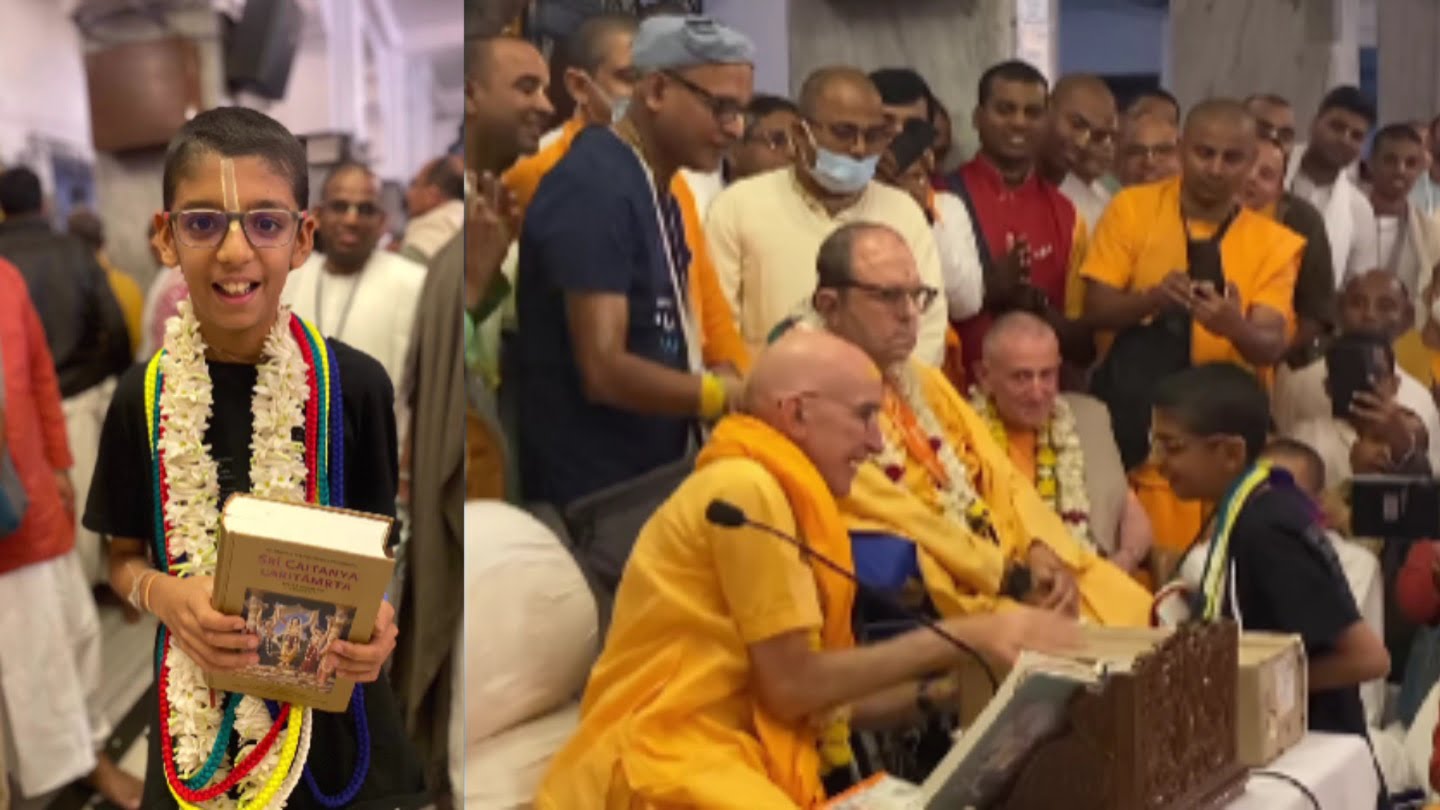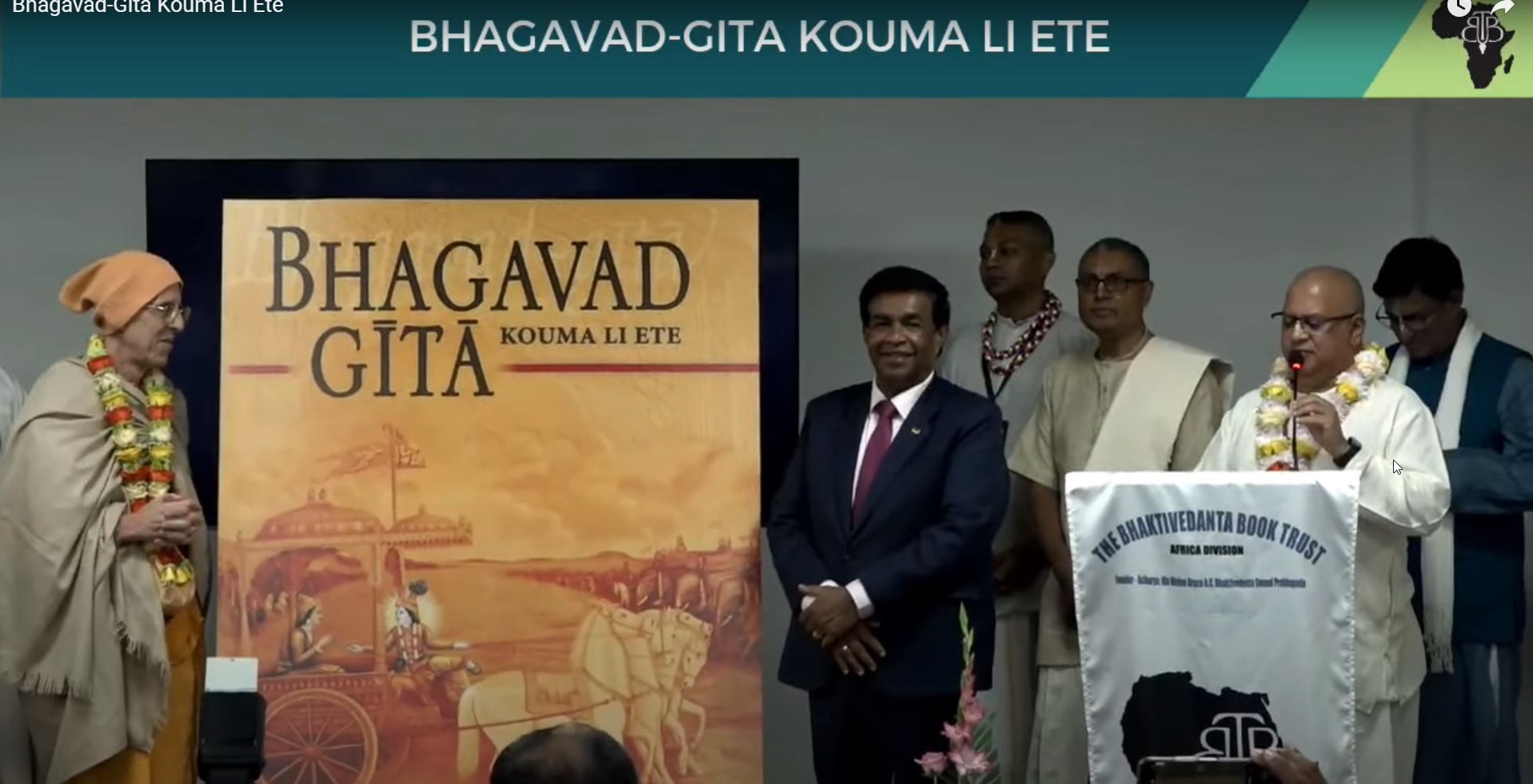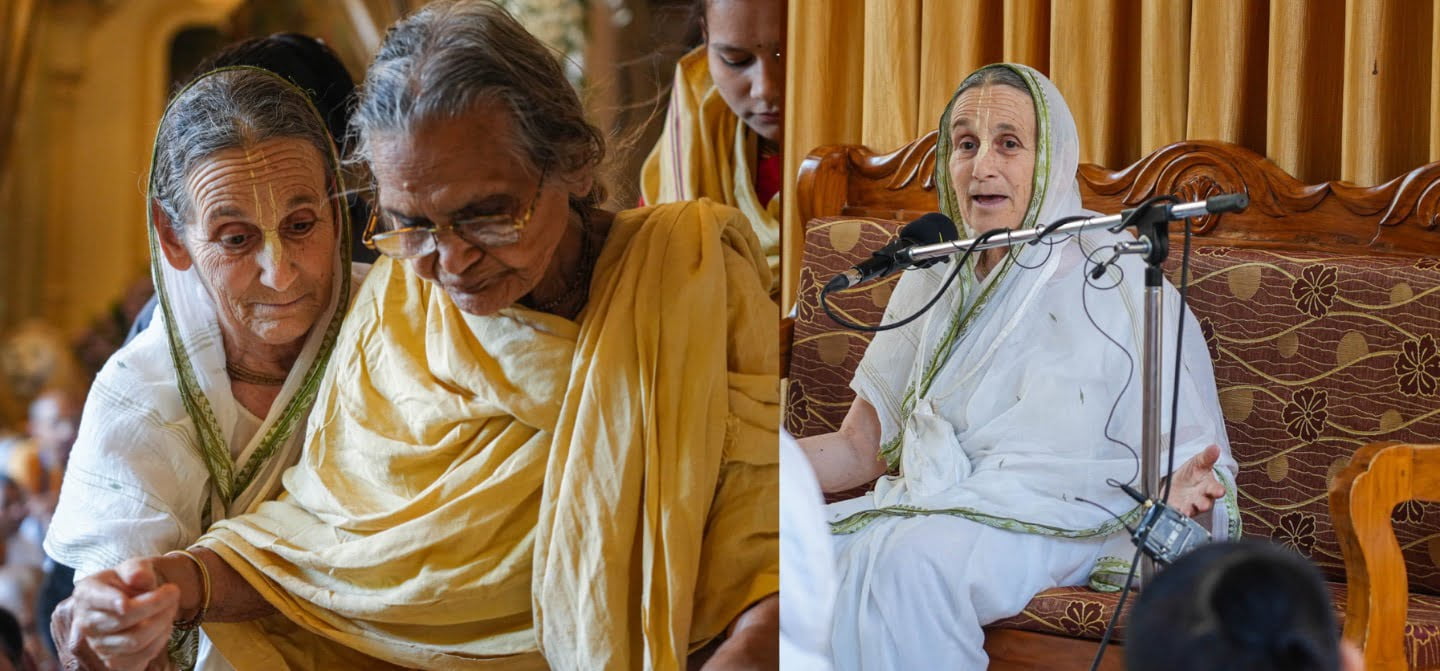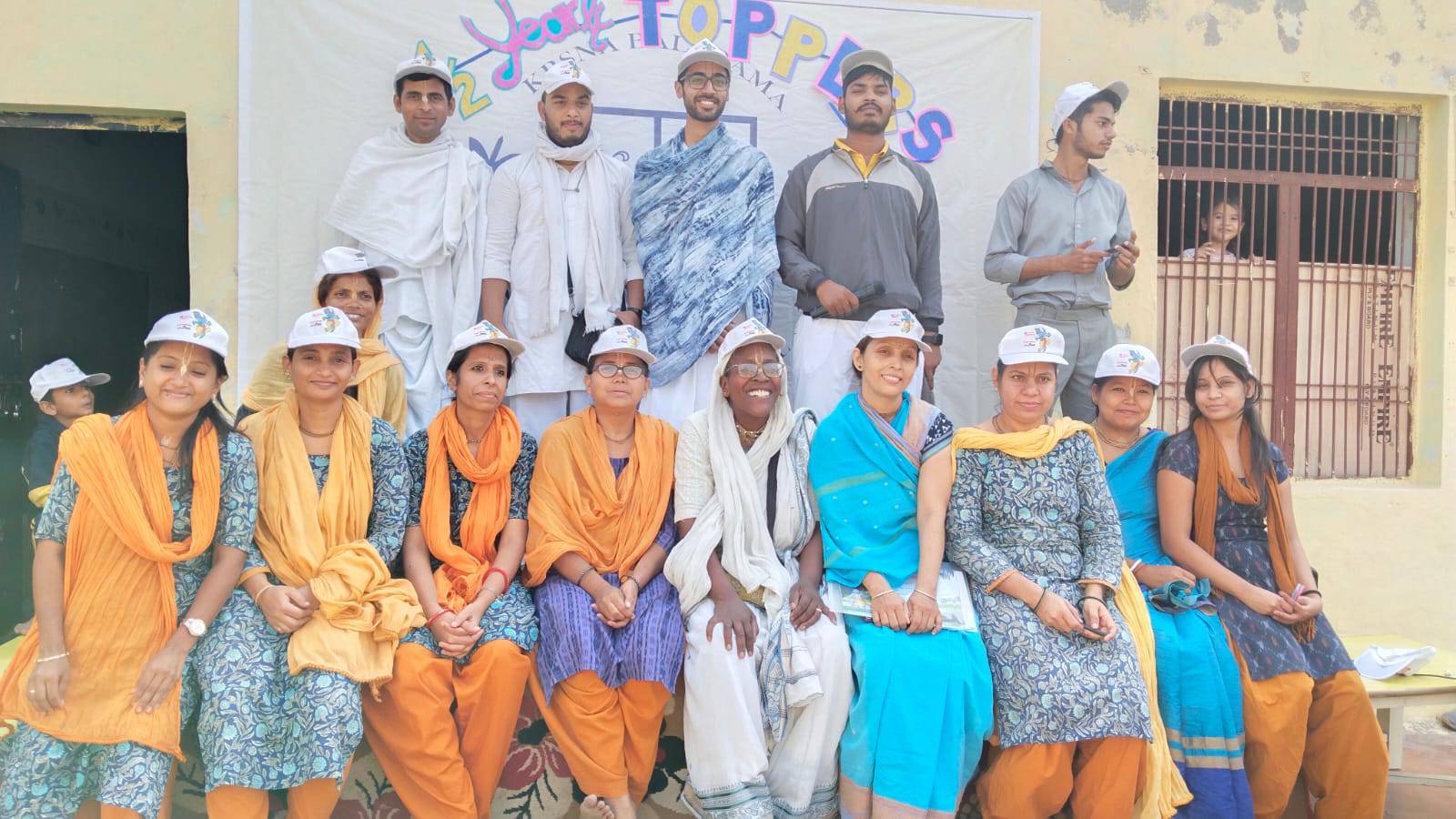First Ever Online Diksa Guru Conference: The Challenges of Being a Guru in ISKCON
By Krishna Premarupa Das | Jun 26, 2021
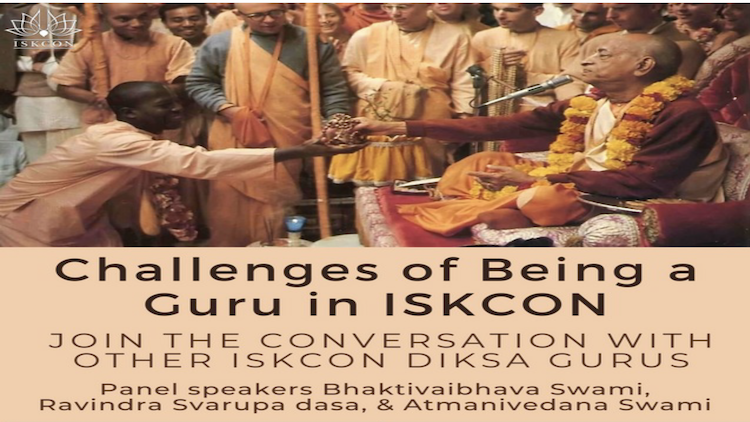
What is the most difficult service in the International Society for Krishna Consciousness (ISKCON)? Most probably, it’s to serve as a diksa guru, or initiating spiritual master.
On Saturday, 5th of June, the GSC hosted a three-hour online conference for ISKCON diksa gurus. This was the first of its kind as a virtual event. The event was titled the “Challenges of Being a Guru in ISKCON”.
The Guru Services Committee (GSC), a standing committee of the Governing Body Commission, the global leadership of ISKCON, has the mandate to assist and support ISKCON gurus in their service to Srila Prabhupada and Sri Caitanya Mahaprabhu. To achieve this end, face-to-face retreats for gurus have been organized by the GSC in the past to facilitate association and exchange amongst these illustrious Vaishnavas. However, it’s been several years since such an event was organized. The pandemic made in-person meetings even more difficult.
But many are taking advantage of the online opportunities now available, as seen by the encouraging response of the conference; where more than 40 ISKCON diksa gurus participated.
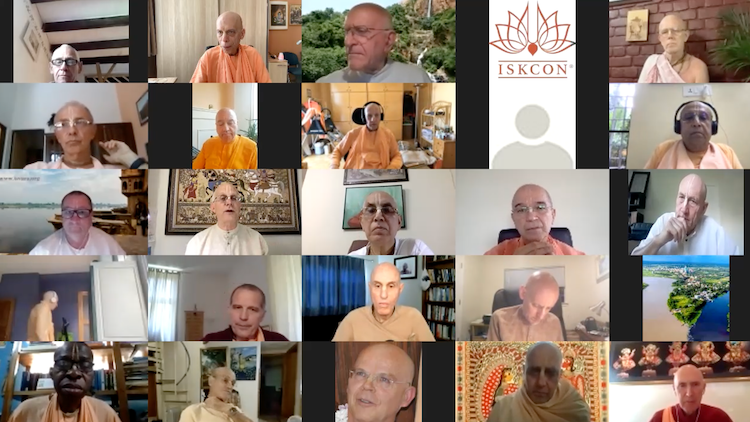
Anuttama dasa, Global Minister for ISKCON Communications and a member of the GSC, welcomed the participants and introduced the theme Challenges of Being a Guru in ISKCON, a topic the GSC felt would be of interest for all.
Three diksa gurus, of various backgrounds and experiences, delivered introductory twenty-minute talks to inspire further discussion. Each speaker highlighted different aspects of the challenges of serving as a guru in ISKCON.
Atmanivedana Swami, the first speaker, analyzed some of the historical problems that were faced by devotees serving as gurus after Srila Prabhupada’s departure, or passing, from this world. He explained that there was an assumption at that time that the next generation of gurus would serve almost in the same capacity as Srila Prabhupada, the Founder-Acharya of ISKCON. This, the Swami elaborately explained to the participants, was a big mistake.
These new gurus were, of course, inexperienced and much younger, and vastly less qualified than Srila Prabhupada on all levels, from spiritual acumen and realization to worldly wisdom. Atmanivedana Swami emphasized that just like a postman, ISKCON gurus today must especially focus on their duty of delivering the message of our parampara and Founder-Acarya unchanged, and in a mood of a humble servant. If someone serving as a spiritual master starts to think, “I am a guru,” or “I am infallible,” he will have serious problems. Therefore, humility and the understanding of always being a servant of one’s own guru is essential for those serving as gurus. Maharaja ended by noting that ISKCON seems to have minimized the role of siksa gurus, or instructing spiritual masters. He felt that needs to be further studied and modified.
The next speaker was Bhaktivaibhava Swami. Maharaja chose to talk about the potential misuse of the position of guru, specifically related to the potential for mental or emotional abuse of one’s students, or disciples. The authority figure of an ISKCON guru differs from the authority figure of, for example, a school teacher or professor, despite its many similarities. Undoubtedly, a professor has a strong influence on the student, but this is limited to the school or university environment and is not related to private life. The relation between a guru and disciple is of a deeper and more personal nature. It, therefore, carries much more weight since it may influence the entire life of the disciple, spiritual and material.
Maharaja explained further how there was a time in our movement when the concept given in sastra (scripture) of a guru as “heavy” was misapplied. “Heavy,” he explained, is meant to be heavy, or loaded, with knowledge. Some thought that a diksha guru must be heavy with his disciples, meaning authoritative, or even harsh, and demanding an inordinate amount of respect and surrender from his disciples. Not so, Bhaktivaibhava Maharaja warned his audience.
Being relatively young and inexperienced at that time, some gurus likely contributed to emotional distress among some of their disciples. This kind of negative experience is completely the opposite of what we learn from sastra; a guru is supposed to enlighten a disciple and inspire him or her in the practice of devotional service. The guru-disciple exchange is supposed to be a loving relationship that leads to a natural dedication to the guru’s teachings and the mission of Lord Caitanya.
Bhaktivaihava Swami further noted that a disciple’s surrender as instructed in sastra has to be seen in the context of the historic Vedic culture. There, the disciple lived at the ashram of the guru from childhood for about twenty years. It was like a true father and son relationship. Nowadays, a guru-disciple relationship within ISKCON is quite different. Most members join as young adults or later. It would be unreasonable for a guru to automatically expect the same type of surrender and dedication from the disciple as mentioned in the sastra, Maharaja concluded. ISKCON gurus must show much more tolerance and understanding concerning their disciples, as we saw by Srila Prabhupada’s own example!
Ravindra Svarupa prabhu gave the third talk. He stressed that Srila Prabhupada distinguished between imitating and following. Srila Prabhupada often said: “Only one thing is to my credit – I have always remained the servant. I never tried to become the master!“ Srila Prabhupada demonstrated that commitment by taking his spiritual master’s order—to preach in the English language—as his life and soul. Srila Prabhupada was successful because he followed that order despite the many difficulties he had to face. Ravindra Svarupa emphasized the need for ISKCON gurus to accept that mood of a humble follower. He then told how he himself became a guru in 1986 during the ‘guru reform movement’. At that time, the need for reform in ISKCON’s understanding of the proper role and functions of diksha gurus became obvious due to the difficulties the movement faced.
Another challenge that ISKCON gurus sometimes meet comes while encouraging their disciples to follow the four regulative principles strictly. Many devotees struggle to follow these principles, especially those raised in an environment that’s not supportive of such a strict lifestyle. Ravindra Svarupa gave additional, and interesting, insights on why Srila Prabhupada stressed these principles of no meat-eating, no illicit sex, no gambling, and no intoxication.
Generally, most devotees understand these as moral principles, to be followed by a pious person or a good devotee. They are moral principles, Ravindra explained, but they are much more than that; they are “principles of knowledge.” Srila Prabhupada used the term “science of self-realization,” and this means one seeks to gain pratyaksa – a direct experience of the Supreme. Therefore, it is the responsibility of ISKCON gurus to not only follow the four regulative themselves, but to get others to follow strictly by understanding how important they are in self-realization.
After these three opening speeches, the assembly of ISKCON diksa gurus was invited to ask questions or give comments on what was presented. In this way, a lively discussion took place, followed by smaller group discussions in various breakout groups. Many other interesting topics were brought up, such as how to maintain the proper mood while receiving honor or worship from disciples (answer: always remaining humble, and as a transparent medium passing any reverence up to one’s own guru), how to develop a better system to give feedback to gurus, and the difference between a traditional guru during Vedic times and an ISKCON guru today who is part of a global movement.
Short reports from the breakout group facilitators and concluding words by the host and GSC Chairman, Prahladananda Swami, completed the conference after slightly more than two-and-a-half hours. From the enthusiastic participation and positive feedback received, it’s safe to conclude that the first ISKCON Guru Online Sanga was a success and will certainly be repeated. The Guru Service Committee hopes that these kinds of conferences will continue to nurture inspiration among the ISKCON diksa gurus. After all, sadhu sanga, the association of saintly people, is not only important and the source of great happiness for neophyte devotees, but also for the advanced devotees and sadhus themselves!




